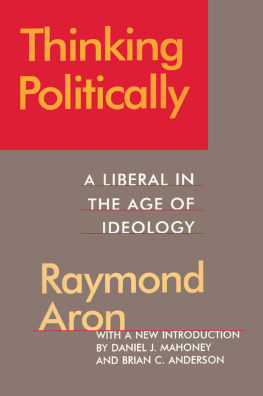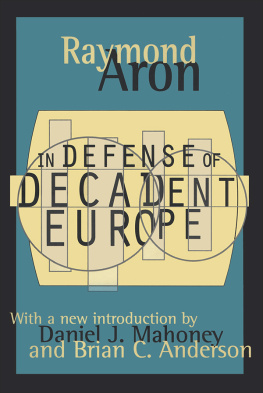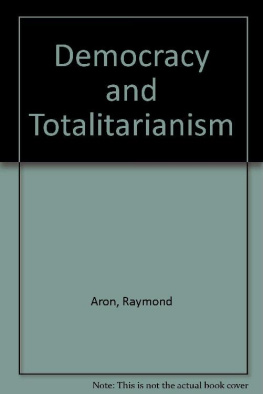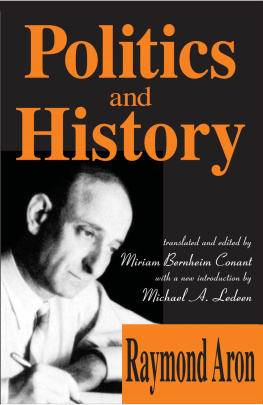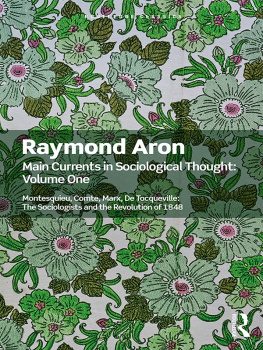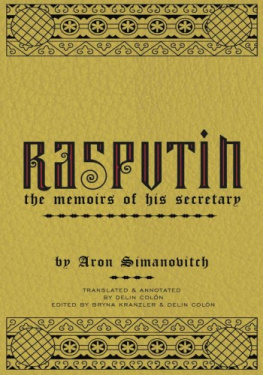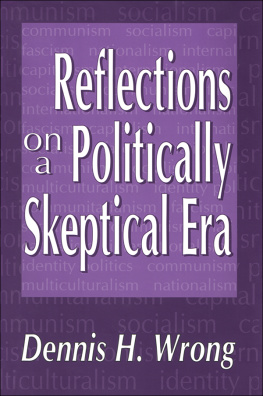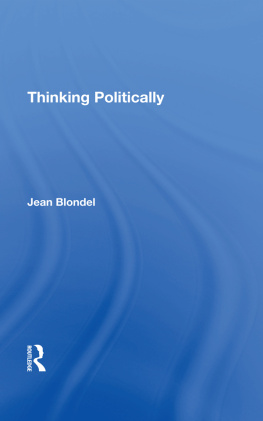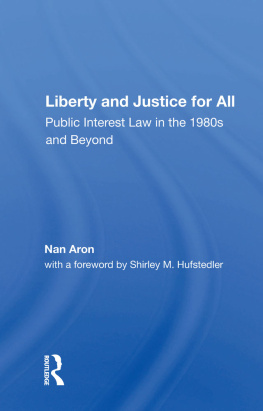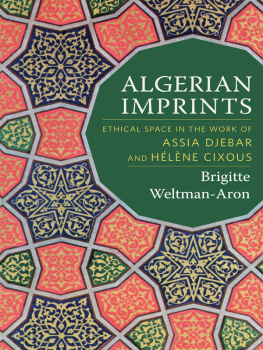Friedrich Nietzsche prophesied with remarkable accuracy that the twentieth century would be marked by great wars fought in the name of philosophic concepts. What Nietzsche could not have anticipated was that the most trustworthy observer and commentator on the ideological drama of the twentieth century would be a French Jewish philosopher turned political scientist and historiana man who would try to understand the forces challenging liberal, bourgeois civilization while using his immense critical powers to defend and sustain a political and social order that was judged to be antiquated, if not contemptible, by all the fashionable currents on the Left and Right.
Raymond Aron (19051983) was a philosopher, scholar, and a journalist, the author of important works on the philosophy of history, the nature of modern society, international relations, and political and sociological thought as well as a chronicler of what he called history-in-the-making for newspapers and magazines such as Le Figaro and LExpress and journals such as La France Libre, Preuves, Encounter, Contrepoint, and Commentaire. He was an applied philosopher of history who wished to do justice to the real role that individual initiative, political choice, and living ideas played in dialectically shaping the destiny of the century. In short, he respected the dramatic elements of human history. His philosophy of history, diffused throughout and undergirding his political and journalistic work, aimed to avoid the twin dangers of historical determinism and vitalistic voluntarism, associated in this century most closely with Marxism and existentialism.
Yet his early philosophic work was not unmarked by existentialism. In fact, in what might be seen retrospectively as an overreaction to the scientistic and positivistic tenor of French intellectual life in the interwar period, the young Aron proclaimed the open-ended plurality of interpretations of human works and events and the fundamentally free or undetermined character of human choice. Later he modified both the tone and substance of his early existentialism by emphasizing the enduring realities of human and social nature without losing sight of their often tragic complexity. But Arons greatness ultimately lies in his dual choice for a conservative-minded liberalism and a genuinely political perspective. He rejected both the secular religions of National Socialism and Marxism and the propensity of intellectuals to commit themselves to grand political adventures without paying sufficient attention to such inescapable constraints and givens of the human world as the structure of social life, the inheritance of the past, and, above all, the concrete choices facing citizens and statesman.This propensity is still evident among many of the well-known schools of contemporary political thought, which in advancing theoretical models detached from any reflection on the politically real, render themselves at best irrelevant, at worst, destructive. Raymond Aron cured himself of a youthful political naivete by immersing himself in the study of modern political economy, the nature of diplomatic-strategic conduct and the character of modern warfare. His mature work was subsequently characterized by an ongoing critical evaluation of the ideological pretenses and actual consequences of the principal anti-liberal doctrines of the twentieth century as well as a Thucydidean attentiveness to the thought and action of participants in political life.
Aron called himself a committed observer, by which he meant that his political engagement flowed from attentive historical observation and political reflection and not from a literary, abstract, or ideological image of what a desirable society ought to look like. His contemporariesmost notably Maurice Merleau-Ponty and Jean-Paul Sartredreamed of the universalizable society founded upon historical reason. Incredibly, they identified that society, for much too long, with the totalitarian Soviet Union. Aron, in contrast, while not rejecting critical reason, believed that it must become truly historical by being fully concrete in its operations.
There are perhaps more scholarly introductions to Arons political reflection than Thinking Politically, but none that is more accessible nor more revealing of his synthesis of careful, empirical observation and principled, humane political judgment.1
Thinking Politically consists of three principal parts. The first is the republication of The Committed Observer, a series of interviews conducted with Raymond Aron by two vaguely leftist professors and journalists, Jean-Louis Missika and Dominique Wolton. These interviews appeared on French television in 1980 and were published in revised book form in 1981. Both the interviews and the book were a huge success with the French public and prefigured the welcoming reception of his Memoirs before and after Arons death in November of 1983. The Committed Observer is important on several levels: it is the clearest introduction to Arons life and thought; it provides an overview and evaluation of the major events, ideas, ideologies, thinkers, and actors of the twentieth century; and it is above all a vindication of Arons model of political reflection and of his sober yet intellectually rich conservative liberalism. In reviewing his own work and the principal events of the century, Aron reveals a different and, one is tempted to say, more radical example of political

